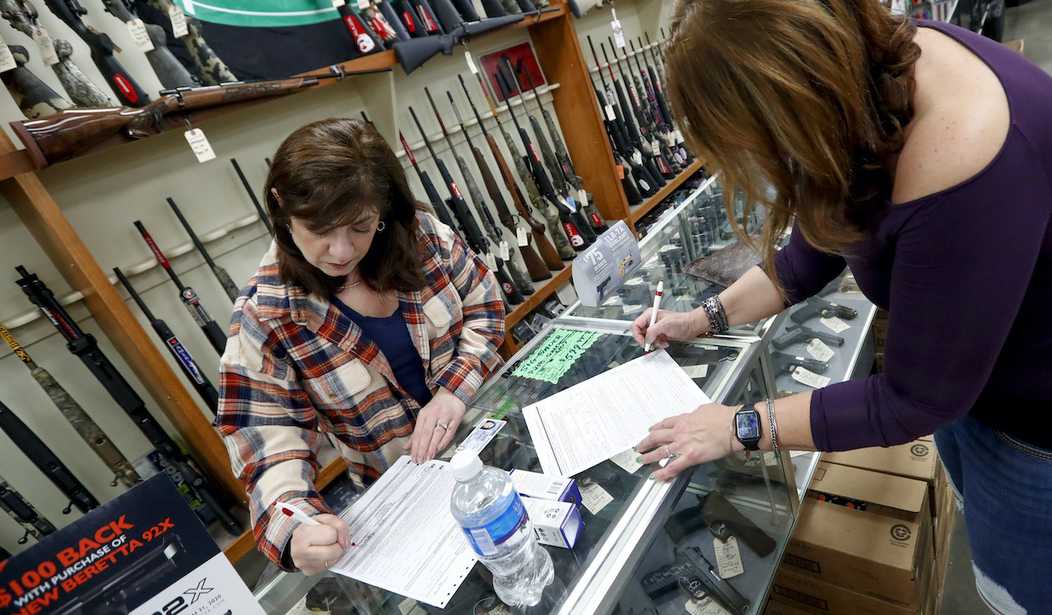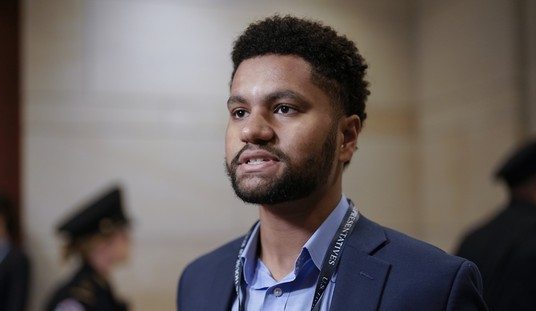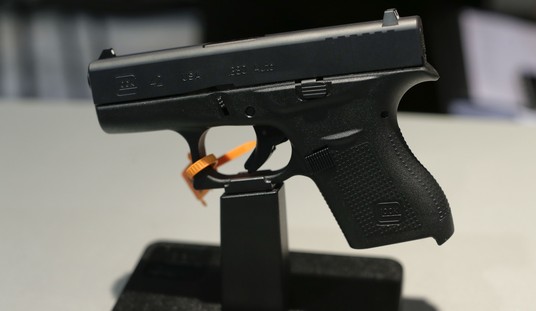Whenever I see Colorado Gov. Jared Polis described as a "libertarian" or a Democrat with "libertarian leanings", I can't help but roll my eyes. To be sure, Polis isn't the Rocky Mountain version of Bernie Sanders, but no self-respecting libertarian would ever sign a privacy-destroying bill like this.
A new law in Colorado will track firearm and ammunition purchases across payment networks, a move gun reform advocates say will help track suspicious purchases that could precede a mass shooting.
Gov. Jared Polis signed the bill into law on Wednesday. It requires card payment companies to apply a specific code to gun and ammo transactions in the state — something already done for other retailers, like grocery stores or gas stations.
... Under the new law, payment companies must make the firearm code available on or after Sept. 1. On May 1, 2025, the codes would be assigned and could then be tracked.
Violations carry a civil penalty of up to $10,000 each.
Rocky Mountain Gun Owners has vowed to wage legal challenges against some of the gun bills advancing in the legislature this session. But as FOX31’s Gabrielle Franklin has reported, opponents have said they probably will not pursue legal action against this measure.
A libertarian governor might have brought up the fact that the folks running credit card companies have said that applying merchant category codes to gun stores is a waste of time. Former Visa CEO Al Kelly dismissed the idea when talking to Time magazine last year, arguing that the companies "don't collect [that level of data] for consumers."
So if [Visa’s Chief Communications Officer] K.C. Kavanagh goes into a gun store and buys three thermoses and a tent, and you go in and buy a rifle and five rounds of ammunition, all I know is you both went to the same gun store. I know what gun store, I know when you went, and I know how much money you spent. But I don’t know what you bought.
Under the bill that Polis has signed into law, gun stores will be required to use the MCCs, but it will be up to companies like Visa and MasterCard to report any suspicious activity to the Treasury Department's Financial Crimes Enforcement Network. How are they supposed to determine what purchases are suspect beyond how much money was spent, and how many false flags are going to be raised when someone purchases an expensive firearm and several hundred rounds of ammunition to go with it; or, as Kelly suggested, a customer buys a big-ticket item that has nothing to do with guns or ammunition?
To make matters worse, both the lawmakers who backed the bill and most media outlets reporting on the measure don't seem to understand what the merchant category code does and does not do.
Starting in May of next year, if you are looking to purchase firearms like this, you may see some changes. A new law would make it so credit card companies would have a code for both guns and ammo.
This would make transactions of firearms identifiable on banking records. Paradis tells 11 News this has him concerned about the future of gun sales in Colorado.
“I looked at this bill, and I go, ‘The book 1984 by George Orwell just came 40 years late,” Paradis said. “But they’re doing everything they can to track everything on every person that they can.”
Supporters of this bill say it will help to identify dangerous purchasing patterns and large purchases of firearms and ammunition and then report them to authorities. Sponsors cite the Aurora theater shooting in 2012, where the shooter purchased over $11,000 worth of firearms, ammunition and military gear before the shooting took place, taking the lives of 12 people and injuring dozens of others.
In a statement one of the sponsors of the bill, Javier Mabrey, says quote:
“Credit cards have been used to finance many of the major mass shootings in recent years, and identifying suspicious weapon and ammunition stockpiling before a tragedy can take place will save lives.”
The merchant category codes established by the International Organization for Standardization don't identify transactions of firearms or ammunition. The new code applies to gun stores, but not to specific items that are sold. As Reuters reported when the new category code was announced in 2022:
At a meeting this week, a subcommittee of the International Organization for Standardization approved what is known as a "merchant category code" for firearms stores, a spokeswoman said.
The decision by the Geneva-based nonprofit was long sought, opens new tab by advocates of tighter gun regulation, such as U.S. Senator Elizabeth Warren and other Democrats including New York City Mayor Eric Adams.It clears the way for banks that process gun retailers' payments to decide whether to assign the new code to merchants. The code would help monitors track where an individual spends money, but would not show what specific items were purchased.
Now, this could always be revised in the future, and that might very well be the next step once the limitations of the current MCCs are on full display, but at the moment these merchant category codes can't identify what someone purchased using a credit card at a gun shop.
Does this mean that gun owners have nothing to fear from this new law? Absolutely not. Former District Attorney George Brauchler, who has prosecuted a number of mass shooting cases, including the Aurora theater shooting in 2012, argues that it's impossible for these financial institutions to identify potential killers through the use of these codes, so they'll likely end up overreporting to protect themselves from potential lawsuits.
It takes no imagination to foresee that what this law creates is liability for the financial institutions, not for what they disclose, but for what they fail to disclose. Imagine victims of gun crime discovering that their loved ones assailant recently had made “ purchases of firearms and ammo prior to the murder — and the credit card company did not report it to the authorities. Lawsuits. Lots of them. It is irrelevant whether they are successful, because the cost of them is a liability and a cost that can only be prevented by either: 1) reporting every firearm transaction, or 2) refusing to accept firearm-coded purchases from the small retail gun shops. Goodbye, local retail gun shops.
Those are the goals, and the vehicle for them does not implicate the Second Amendment, because the bill cajoles private banking institutions into doing what the government never could. If our states experience with mass shootings is a predictor, this backdoor way of frustrating Coloradans’ ability to exercise their Second Amendment rights likely will save no lives.
Of course, for those planning mass murder, or just trying to avoid their purchasing decisions from being handed over to the government, the use of cash to purchase firearms and ammunition would defeat this misguided and ineffective bill. Polis should veto it.
And if Polis truly had a libertarian streak in him, he would have.
I've seen it suggested that maybe the governor is just doing a little political horse-trading; signing this gun control bill and others so he has cover to veto an "assault weapons" ban if it gets to his desk, or even signing the bill in a quid pro quo with sponsor Tom Sullivan, who's likely to be the deciding vote in advancing or defeating the gun ban bill when it's heard in the Senate State, Veterans, and Military Affairs Committee. As we discussed on Bearing Arms Cam & Co yesterday, Sullivan has expressed skepticism about a state-level semi-auto ban; instead, he prefers a federal prohibition on so-called "assault weapons." Did Polis sign Sullivan's merchant category code bill so that Sullivan would cast the deciding "no" vote on the gun ban bill and spare the governor from vetoing the bill? Anything's possible, but if that is indeed the case it's hardly a fair trade. Both bills threaten to do immense harm to our Second Amendment rights, and Polis should have used his veto pen to reject the merchant category code measure. That's what any good libertarian would have done, but Jared Polis is a Democrat, not a libertarian, no matter how many times the media applies that label to him.









Join the conversation as a VIP Member